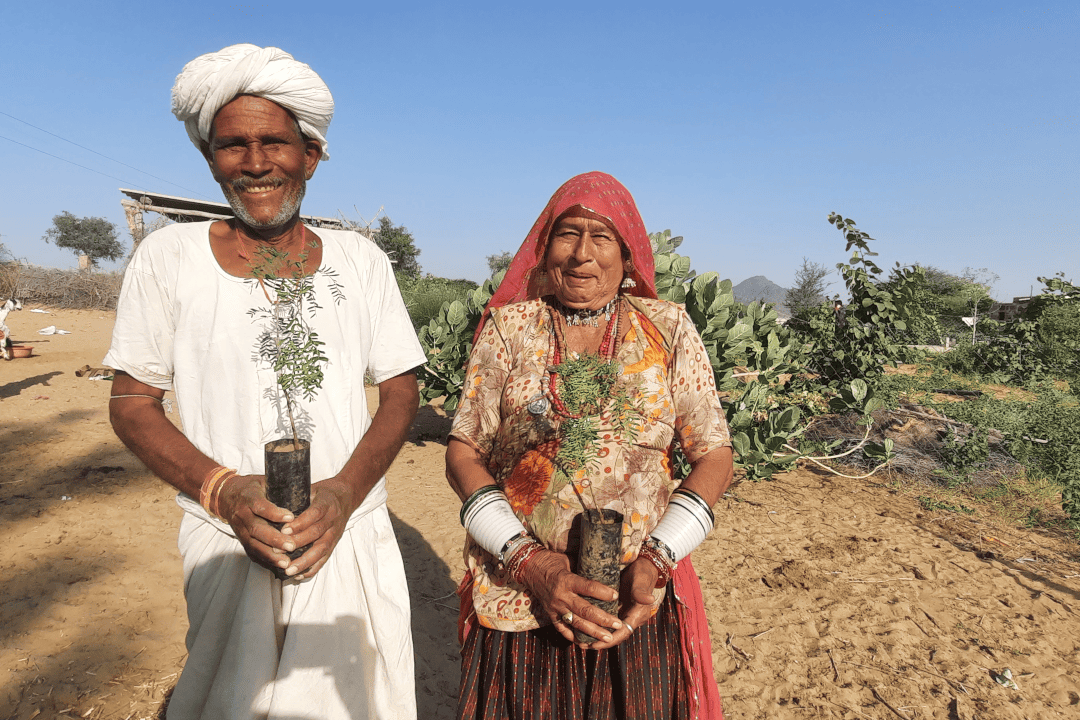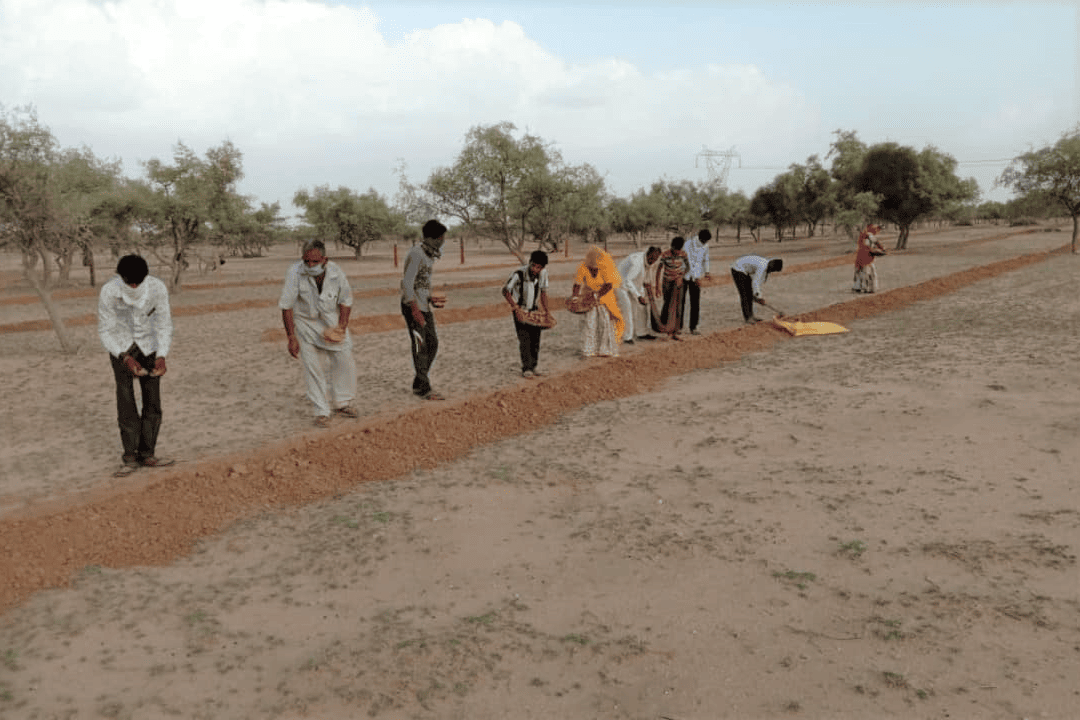Mission and Vision

Approach and Strategy

Since its inception GRAVIS has rooted for two Gandhian beliefs which are the basis of its overall strategy and approach: The Gandhian philosophy of Sarvodaya which means “all rising, but the last person first”, stresses on the aspect that progress must follow bottom-up approach to ensure an inclusive and fair socio-economic system. We work for such collective rise of men, women, and children, regardless of economic state, age, caste or religion.
And to ensure this, GRAVIS adheres to another Gandhian notion – Gram Swaraj or village self-rule. Gandhi’s philosophy of village self-rule is the creation of an independent and self-sufficient village which is not reliant on others for the provision of its needs. This also underlines the importance of interventions not only being planned with the local communities but also including them at all times to the largest extent possible in its execution, maintenance and monitoring. It is essential to the success and sustainability of all measures to rely on a local community that is organized and works collectively for its own empowerment. A range of community-based organizations (CBO) therefore form the core element of GRAVIS’ work and we seek to actively engage community members in our projects, rather than merely adding resources to a broken system.
This is why one of the most barren landscapes on earth, neglected for the longest time became a matter of grave concern. GRAVIS – Centre for People’s Sciences and Rural Development was one of the first grassroots development organizations to enter the Thar region of Rajasthan where survival of humans, animals and vegetation continued to be an undeniable challenge for centuries. Founded with the objective to serve the marginalized population of rural and remote areas of the Thar Desert by securing their livelihood through an integrated development approach and meaningful community participation, the initiative led by Late L. C. Tyagi and Late Shashi Tyagi (along with some social activists) gradually extended to the northern State of Uttarakhand and Bundelkhand region of the State of Uttar Pradesh in recent years.
And to ensure this, GRAVIS adheres to another Gandhian notion – Gram Swaraj or village self-rule. Gandhi’s philosophy of village self-rule is the creation of an independent and self-sufficient village which is not reliant on others for the provision of its needs. This also underlines the importance of interventions not only being planned with the local communities but also including them at all times to the largest extent possible in its execution, maintenance and monitoring. It is essential to the success and sustainability of all measures to rely on a local community that is organized and works collectively for its own empowerment. A range of community-based organizations (CBO) therefore form the core element of GRAVIS’ work and we seek to actively engage community members in our projects, rather than merely adding resources to a broken system.
This is why one of the most barren landscapes on earth, neglected for the longest time became a matter of grave concern. GRAVIS – Centre for People’s Sciences and Rural Development was one of the first grassroots development organizations to enter the Thar region of Rajasthan where survival of humans, animals and vegetation continued to be an undeniable challenge for centuries. Founded with the objective to serve the marginalized population of rural and remote areas of the Thar Desert by securing their livelihood through an integrated development approach and meaningful community participation, the initiative led by Late L. C. Tyagi and Late Shashi Tyagi (along with some social activists) gradually extended to the northern State of Uttarakhand and Bundelkhand region of the State of Uttar Pradesh in recent years.

The following are our main objectives:
- Integrated development of humanity without discrimination of caste, religion, or sect. Creation of village institutions ensuring adequate representation of all sections of the community, including women, the elderly and marginalized castes.
- Incorporation of better health behaviours and association of these with the overall development of rural society.
- Sustainable development of natural resources to increase productivity and income.
- Conservation and development of village commons.
- Improvement of education, with particular emphasis on educating girls.
- Promotion of financial savings at the individual, group, and community levels in order to increase familiarity with the economic system and to reduce dependence on outside capital.
- Empowerment of village communities, with emphasis on the poorer and weaker sections of society, in order to reduce economic and social disparity and to create a self-reliant and decentralized community system.
- Coordination of training programmes to teach youth, women, and field workers how to implement strategies of integrated development within their own communities.
- Generation of awareness among rural communities, particularly the poor, so that underprivileged groups can benefit from development schemes.
- Conducting research projects and studies to make development programmes more effective and to improve community participation.
- Provision of humanitarian relief during calamities and other emergencies.
- Cooperation with partner organizations sharing similar objectives.


